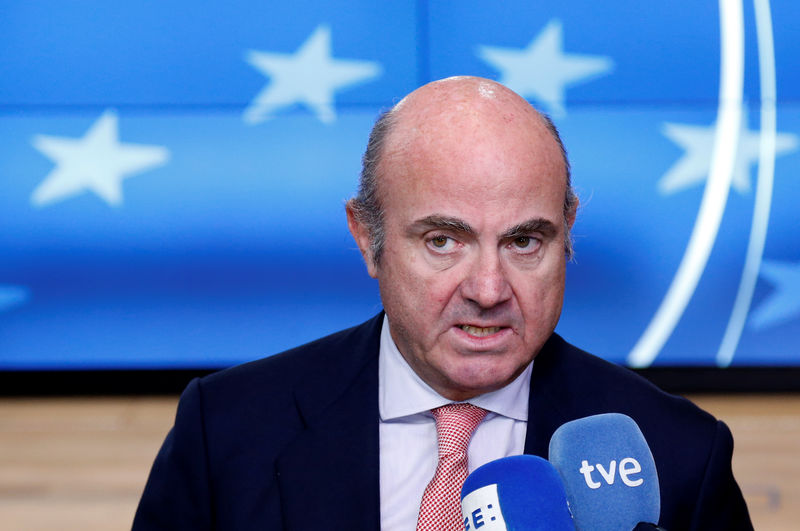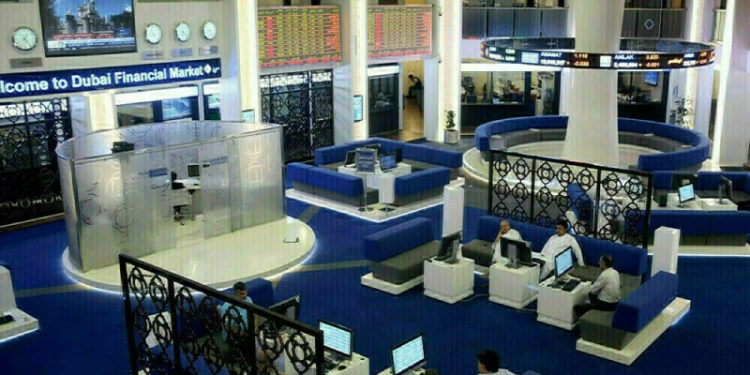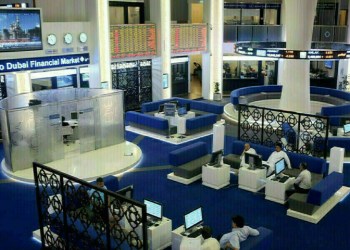 © Reuters. Spain’s Economy Minister de Guindos talks to the media during a eurozone finance ministers meeting in Brussels
© Reuters. Spain’s Economy Minister de Guindos talks to the media during a eurozone finance ministers meeting in BrusselsBy Jan Strupczewski and Francesco Guarascio
BRUSSELS (Reuters) – Euro zone finance ministers on Monday chose Spanish Economy Minister Luis de Guindos to succeed European Central Bank Vice President Vitor Constancio in May, a move likely to boost the chances of a German becoming head of the ECB next year.
The choice of a Southern European for vice president increases the likelihood that a northerner such as German Bundesbank governor Jens Weidmann could be elected to replace Mario Draghi as head of the ECB in 2019. This could influence the bank’s ultra-loose monetary policy for the 19-country common currency area.
“The Eurogroup (of euro zone finance ministers) today gave its support to the candidacy of Luis de Guindos for the position of Vice President of the European Central Bank (ECB),” an EU statement said after a brief discussion among finance ministers.
After being chosen as ECB Vice-President, De Guindos said he would resign as Economy Minister within days.
Some EU lawmakers opposed his appointment fearing the nomination of a politician could affect the independence of the ECB. But De Guindos dismissed this criticism.
“I have been a minister, but to be a minister is something that does not limit the defense that I make on the independence of the European Central Bank. I will defend the independence of the European Central Bank,” de Guindos told reporters after his appointment.
Initially faced with two candidates — de Guindos and Irish central bank governor Philip Lane — the ministers had their choice made simple for them by Ireland’s decision to withdraw Lane’s name.
“I believe that it is crucial that the election of a new Vice-President for the ECB is based on consensus, and should not be a source for any disagreement,” Irish Finance Minister Paschal Donohoe said in a statement before the ministers’ meeting.
“In that context, I have decided that, on balance, it would be in the interests of the euro area as a whole to withdraw Philip’s candidacy in advance of any vote,” he said, adding that de Guindos had an “excellent track record”.
Ministers said the appointment of De Guindos should be finalised by EU leaders in a regular summit on March 22-23.
The European Parliament’s economic committee, which has only a consultative role, said after an informal hearing of both candidates last week that Lane was a better choice.
Spain, the euro zone’s fourth-largest economy, has not had a representative on the executive board of the ECB since Jose Manuel Gonzalez-Paramo’s term ended in 2012.
Ireland has never held a post in the ECB at all, but Lane is widely seen as a top candidate to become ECB chief economist when Peter Praet leaves his position next year, euro zone officials said.
WEIDMANN
The choice of a Southern European for vice president could pave the way for Weidmann to be elected at the head of the ECB next year.
“It looks like that is the case,” one euro zone official said. “But it is a chess game and we don’t know all the players yet. Lane would be well placed as chief economist, but Weidmann depends on the distribution of the big jobs in 2019.”
The “big jobs” include the head of the European Commission, the chairman of European Union leaders and the head of the European Parliament — all of which will come up for replacement in 2019.
Euro zone officials said Weidmann could get the ECB top job if, for instance, France got the presidency of the European Commission, naming someone like the EU’s chief Brexit negotiator, Michel Barnier, or IMF head Christine Lagarde.
Picking the Bundesbank chief for the ECB presidency may be tricky. Although Weidmann is considered a top-notch central banker, he has alienated some officials with his opposition to the ECB’s ultra-easy monetary policy, which is credited with reviving economic growth.
Some other central bank governors regarded this as disloyalty in a time of crisis.
Asked whether his appointment could pave the way for a German head of the ECB, De Guindos denied any link between the two positions. He said that no country that supported him asked for anything in return.
“There is no conditionality attached at all,” he said.
Weidmann has also ruffled some political feathers, clashing publicly with Italy’s then-prime minister, Matteo Renzi, over Rome’s failure to cut its debt further.
After being on the losing side in the ECB’s big decisions on economic stimulus, Weidmann might also find it hard to unite the Governing Council, which strives for consensus decisions and rarely resorts to voting.
Source: Investing.com





























